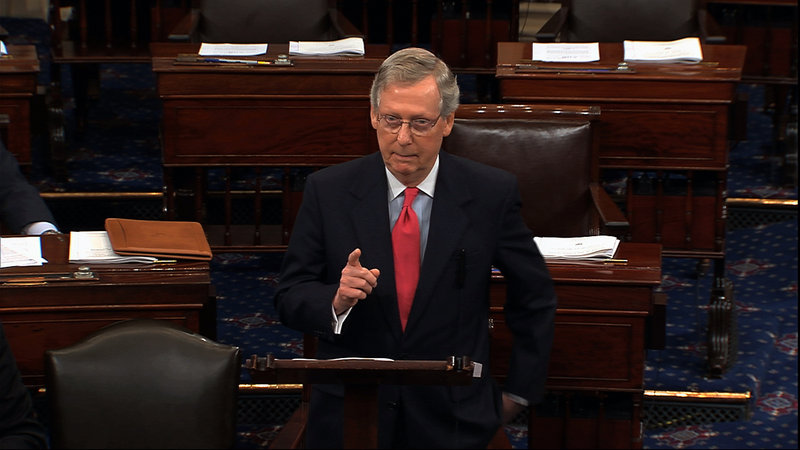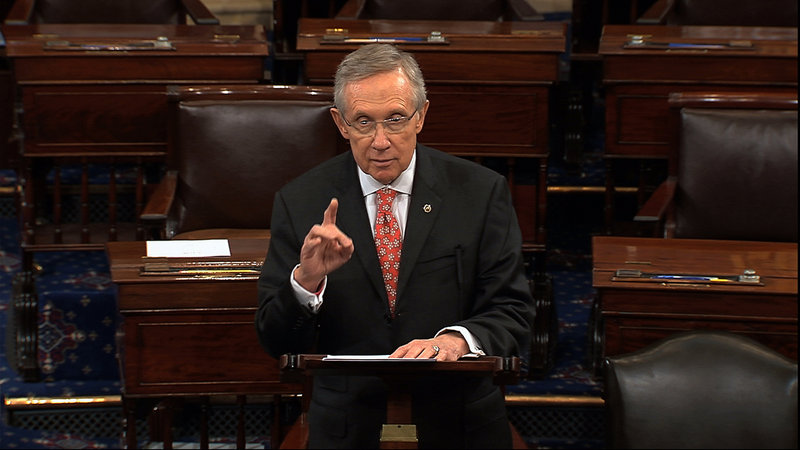WASHINGTON — Fed up with Republican efforts to block confirmation of President Obama’s appointees, Democrats threatened Thursday to limit use of the filibuster, a drastic maneuver that would end an age-old Senate tradition.
Senate Majority Leader Harry Reid set the stage for a showdown next week, scheduling votes on seven stalled nominations that require 60 votes to advance under a filibuster. If those votes fail, Reid vowed that Democrats would alter Senate rules on executive branch nominations to allow them to pass on majority votes.
“This is about making Washington work regardless of who’s the president,” the Nevada Democrat said in a heated debate that consumed the day. “The constant obstruction in this chamber has gone on long enough.”
The Senate’s Republican leader, Mitch McConnell, bitterly protested Reid’s threat, saying it would be “one of the most consequential changes to the United States Senate in the history of our nation.”
The Kentucky senator charged that Democrats want to replace the Senate’s mandate of “advise and consent” with “sit down and shut up.”
Republicans warned that use of the so-called “nuclear option” would lead them to shut down the Senate for the rest of the congressional term and make the filibuster the centerpiece of their campaign in next year’s elections.
“If Senator Reid changes the character of the Senate, then the Senate ceases to function,” said Sen. Lamar Alexander, R-Tenn. “We’ll take our case to the people, we’ll argue for a new majority, and then Republicans will be in a position to do whatever Republicans with 51 votes want to do.”
At the heart of the dispute are the president’s unconfirmed choices to lead the Labor Department and Environmental Protection Agency, and, more significantly for Democrats, long-delayed nominees to lead the Consumer Financial Protection Bureau and fill posts on the National Labor Relations Board.
The fight echoes one from 2005.
Then, Republicans had the Senate majority and Democrats were blocking several of President George W. Bush’s judicial nominees. The dispute sparked similar threats to alter the filibuster, but with the roles reversed.
The impasse ended when 14 senators negotiated a compromise. Just five of them remain.
Send questions/comments to the editors.




Success. Please wait for the page to reload. If the page does not reload within 5 seconds, please refresh the page.
Enter your email and password to access comments.
Hi, to comment on stories you must . This profile is in addition to your subscription and website login.
Already have a commenting profile? .
Invalid username/password.
Please check your email to confirm and complete your registration.
Only subscribers are eligible to post comments. Please subscribe or login first for digital access. Here’s why.
Use the form below to reset your password. When you've submitted your account email, we will send an email with a reset code.